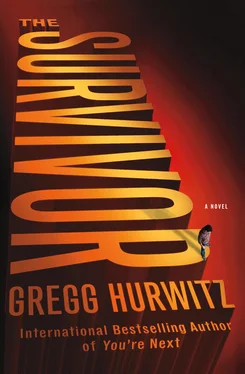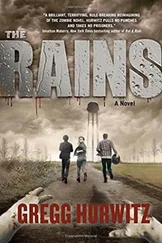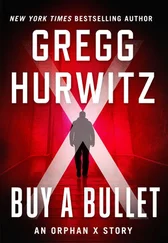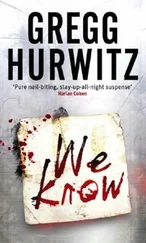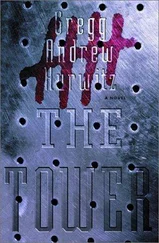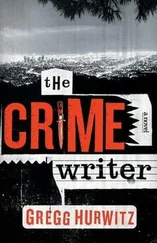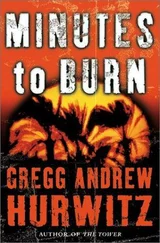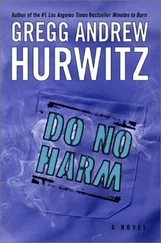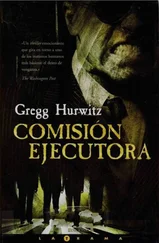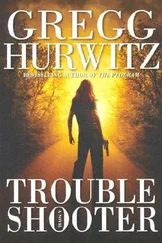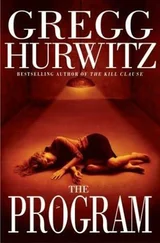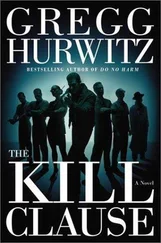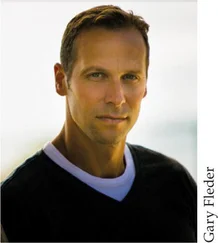Gregg Hurwitz - The Survivor
Здесь есть возможность читать онлайн «Gregg Hurwitz - The Survivor» весь текст электронной книги совершенно бесплатно (целиком полную версию без сокращений). В некоторых случаях можно слушать аудио, скачать через торрент в формате fb2 и присутствует краткое содержание. Жанр: Триллер, на английском языке. Описание произведения, (предисловие) а так же отзывы посетителей доступны на портале библиотеки ЛибКат.
- Название:The Survivor
- Автор:
- Жанр:
- Год:неизвестен
- ISBN:нет данных
- Рейтинг книги:3 / 5. Голосов: 1
-
Избранное:Добавить в избранное
- Отзывы:
-
Ваша оценка:
- 60
- 1
- 2
- 3
- 4
- 5
The Survivor: краткое содержание, описание и аннотация
Предлагаем к чтению аннотацию, описание, краткое содержание или предисловие (зависит от того, что написал сам автор книги «The Survivor»). Если вы не нашли необходимую информацию о книге — напишите в комментариях, мы постараемся отыскать её.
The Survivor — читать онлайн бесплатно полную книгу (весь текст) целиком
Ниже представлен текст книги, разбитый по страницам. Система сохранения места последней прочитанной страницы, позволяет с удобством читать онлайн бесплатно книгу «The Survivor», без необходимости каждый раз заново искать на чём Вы остановились. Поставьте закладку, и сможете в любой момент перейти на страницу, на которой закончили чтение.
Интервал:
Закладка:
“ Sunday? It’s Tuesday night. There’s no way-”
The rescue saw in Yuri’s hands revved to life, a deafening roar that faded back to silence.
Pavlo held up a finger. “Five days. The contents of that box in my hand. Or we will take your daughter, slice her in half, and place the top of her on this ice. Here. Where she can look across at rest of her. But you? We will not touch you.” He rested a gloved hand on the surface beside Nate. “Is there any part of this that is unclear?”
Nate shook his head.
“If you run or we cannot find you, we do this to her also.”
“How the hell am I supposed to…?”
A long, patient blink, eyelids like crinkled paper. “If you talk to police or FBI and Agent Abara, we do this to her also.”
The mention of Abara gave Nate a fresh stab of dread. So Pavlo knew about him already. How much access did this man have?
“Five days,” Pavlo continued. “Or the precious handwriting in little red diary will never make it to page ninety.”
He held up the handcuff key, which glinted in the faint light, then dropped it. A metallic ring, and then his dress shoe pinned it to the concrete off the bounce. He nodded, and Yuri revved the saw again. He walked up to Nate, forearms tensing to control the powerful tool, and drew the biting blade back over one shoulder. Nate tried to lean away, ice pressing into his hamstrings, and as the carbide teeth whistled toward his chest, he closed his eyes.
A scream of impact, frozen chips flying up at his face. The ice shuddered around him, and then the block shifted, a crack zigzagging from the incision and moving between his legs. As Nate blinked away the ice flecks from his eyelashes, the men withdrew. Their shadows crowded the beam of light. Then one of them kicked over the source, and the darkness was again all-embracing. Pattering of footsteps. The rusty door slid open, then shut.
Silence. Cold. Terror. Another reappraisal of what it meant to hit bottom.
Nate strained, shoving his numb legs this way and that, the ice giving by degrees. He fought one leg free and finally the other, sliding down onto the floor, where he lay for five minutes or thirty, panting, waiting for life to seep back into his lower body. His hands cuffed before him, he rolled painfully on the concrete, searching for the key that Shevchenko had dropped. At last he felt it beneath the numb tips of his fingers. It was an agony of cramped muscles and near misses until he finally guided it into the tiny slot and managed to twist. Freeing his wrists, he slung the cuffs away. They slid in the darkness a good distance, unobstructed.
It took several attempts to rise and a few more for him to feel his legs beneath him well enough to walk. Staggering in the gloom, pinwheeling off crates, he considered the task before him. And what hung in the balance. Five days. The contents of that box in my hand. Or they would kill Cielle.
There’d be no offing himself now.
Finally he groped his way to the door and stepped out, soaked jeans chafing him, T-shirt askew, into an alley. He limped toward an unfamiliar intersection. A few gangbangers sitting on the shell of a Camaro looked up from their brown-bagged forties as he passed.
He was, he realized, a long way from home.
Chapter 13
Pavlo Shevchenko woke with a knot in his throat and his lungs clutching for air. He drew in a screech of breath and rose, slapping off the sheets. He sat up, basted in sweat, eyes darting, making sure the walls were far away.
Space. There was space here.
His California king mattress sat centered in the two-thousand-square-foot bedroom that was the second floor. When he’d bought the mansion in the bombastically titled Mount Olympus community in the Hollywood Hills, the first thing he’d done was knock out all the upstairs walls to give himself more breathing room. He would’ve taken out the pillars, too, if they weren’t needed to hold up the roof.
Floor-to-ceiling glass looked out at a steep stretch of canyon and the boulevard below, alive with light and movement. He rose and paced the vast room to show himself that he could, that he had the freedom to roam.
His history was defined by cages. His great-great-grandfather was a Cossack highwayman who’d died in the prison camps of Peter the Great, where the vory v zakonye, “thieves-in-law,” first rose to power. Populating the sparse branches of Pavlo’s family tree were more sworn criminals with allegiance to nothing but the thieves’ world, the vorovskoi mir. A grandfather who survived the NKVD torture chambers only to succumb to the terrors of Babi Yar. An uncle who sliced off his finger in a corrective-labor camp in the Urals to show defiance to the conventions of the world outside the bars.
Pavlo was born on the day of Stalin’s death in Donetsk, an industrial city in a bleak corner of Ukraine. At the time his father, who had taken the thief’s vow-to turn his back on all family except for his fellow criminals-was busy dying of dysentery in the Omsk Colony, where he’d been sentenced to six decades of hard labor. By his thirteenth year, Pavlo had made his way to the black markets of Odessa, where he came up among the syndicate, rising to the prestigious position of pickpocket by the age of fifteen. He did the bidding of the old-school vory, growing skilled with a blade. For his first execution, he cut off a man’s fingers, locked him in a car, and set it on fire. He never forgot how the man stared at him through the windows, never crying out. An early lesson taught by that hollow gaze: There are those who are meat and those who are fed.
By his seventeenth birthday, Pavlo was so feared that when he entered a room, grown men would put out their cigarettes and rise in respect. He did multiple stints in the Zone, coming out each time with more skills and more decoration, his service record tattooed into his flesh.
The Zone mocked the very conditions of existence. Cells built for sixteen prisoners were filled with sixty. Not enough room for everyone to stand at once, so they took shifts on their feet, rotating by the slot of the window where they drew in a few precious lungfuls of oxygen. They slept in stacks on the bunk beds. One toilet for sixty men-a hole in the earth, no paper. Men died of the heat in the summers and of cold in the winters. They suffocated in plain sight. When Pavlo was punished for asserting order, he lived for months at a time in a cement-walled standing cell little bigger than a coffin. One hour a week, for exercise, he was allowed into a belowground pen with a mesh ceiling that looked up into cells, the caged run of a jaguar. Like everywhere else, it smelled of rot and death and the insides of other men.
Air. There was never enough air.
In the Zone he learned the truth of humanity, saw people as they really were. Downcasts, the lowest of the low, lived beneath cots, where they washed foot wrappings and ate crumbs. Their bodies existed only for the others; they were used until they were no more than living remains. Prisoners were trampled. Kicked to death. Beaten with dirt-filled socks until they urinated blood. The grumbling in their stomachs underscored the emptiness within. There was one rule only: survive.
And yet in the midst of all this, there was tradition. Honor. When there was an interruption in the order of things, Pavlo oversaw one of the pravilki, the thieves’ courts. A man who had stolen from a vor above his rank was held on the floor, and the others took turns jumping from the top bunk until they’d shattered his rib cage. There was that potted plant in a prison in Perm that lived on the lip of the window grate. Each morning they would move it hand over hand through the room, each man allotted one sniff. There were chess games played with pieces of saliva-moistened bread and about once every season a ladle of fish stew poured over the kasha to make it edible.
Читать дальшеИнтервал:
Закладка:
Похожие книги на «The Survivor»
Представляем Вашему вниманию похожие книги на «The Survivor» списком для выбора. Мы отобрали схожую по названию и смыслу литературу в надежде предоставить читателям больше вариантов отыскать новые, интересные, ещё непрочитанные произведения.
Обсуждение, отзывы о книге «The Survivor» и просто собственные мнения читателей. Оставьте ваши комментарии, напишите, что Вы думаете о произведении, его смысле или главных героях. Укажите что конкретно понравилось, а что нет, и почему Вы так считаете.
